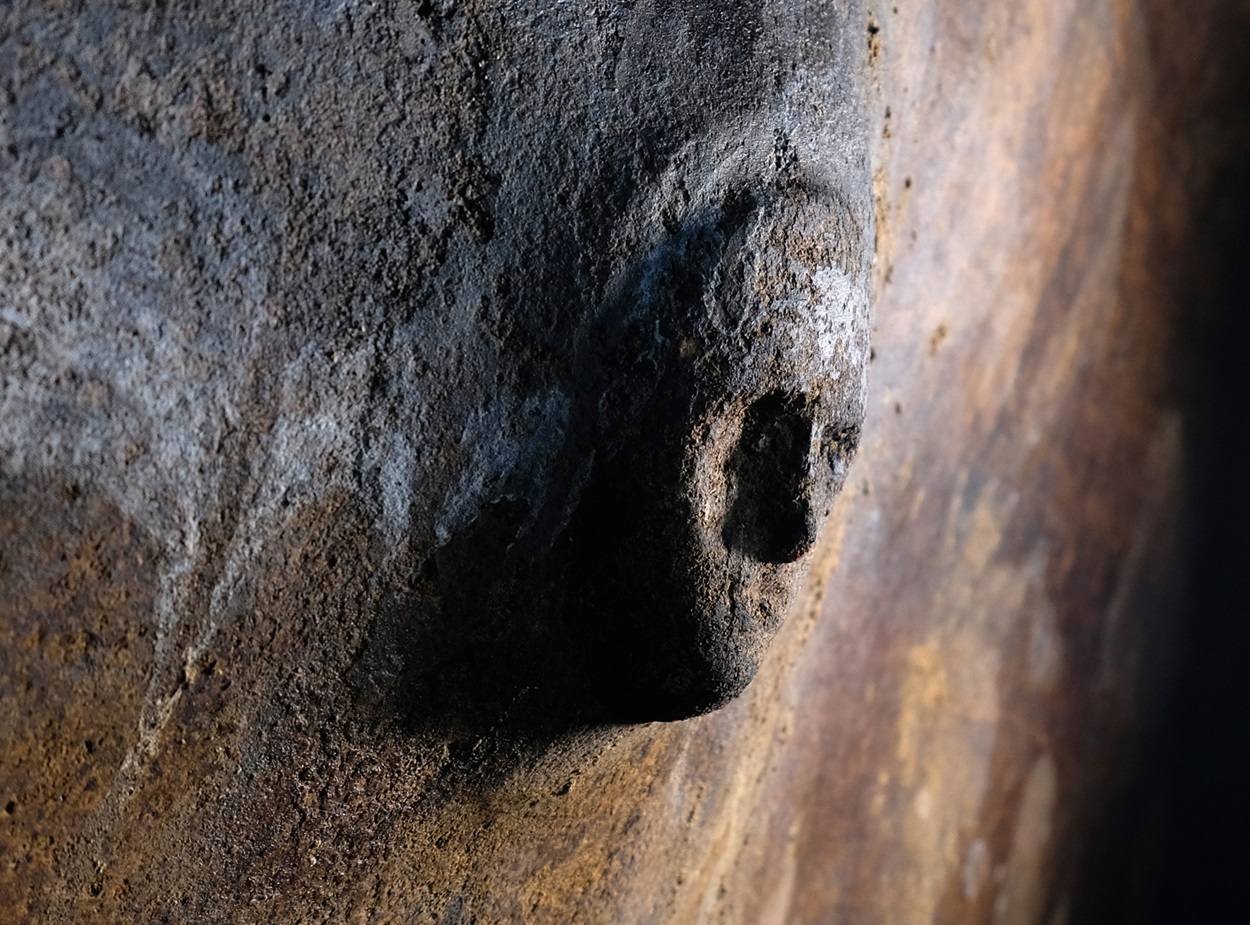Archaeologists excavating the ancient city of Ptolemais on Libya’s Mediterranean coast have discovered a stone face on the wall of a cistern from the late 4th to 3rd century BC.
Ptolemais is located in Cyrenaica, a historic region in present-day northeastern Libya. It was established by the Ptolemaic dynasty (likely Ptolemy III Euergetes), and served as a port for the city of Barca, 24 kilometres (15 mi) inland.
Ptolemais came under Roman control in 96 BC and was soon incorporated into the Roman province of Crete and Cyrenaica. Following Emperor Diocletian’s administrative reforms, the city became the capital of the province of Libya Superior, also known as Libya Pentapolis.
Excavations by the University of Warsaw have revealed the utility area of a villa owned by a local dignitary, featuring an advanced water system where a peristyle pool (impluvium) collected rainwater and directed it into two underground cisterns.
The eastern section of the villa features a small peristyle courtyard surrounded by a kitchen, a staircase to the upper floor, and a room with a repaired mosaic floor.
Upon closer inspection of one of the cisterns, archaeologists discovered a human face sculpted from hydraulic mortar on the wall.
Dr. Piotr Jaworski, head of the Polish Archaeological Mission to Ptolemais, said: “The face bears a certain resemblance to human faces carved on the walls of the Libyan sanctuary in Slonta, located south of Cyrene. It cannot be completely ruled out that the owner of the house, or at least the people involved in creating the image, were of Libyan origin.”
“Thanks to epigraphic sources, it is known that at least from the 1st century BC, the citizenship of the Greek cities of Cyrenaica was also granted to the quickly assimilating representatives of the Libyan elites. However, this is just speculation for now,” added Dr. Jaworski.
Header Image Credit : Anna Tomkowska
Sources : PAP





